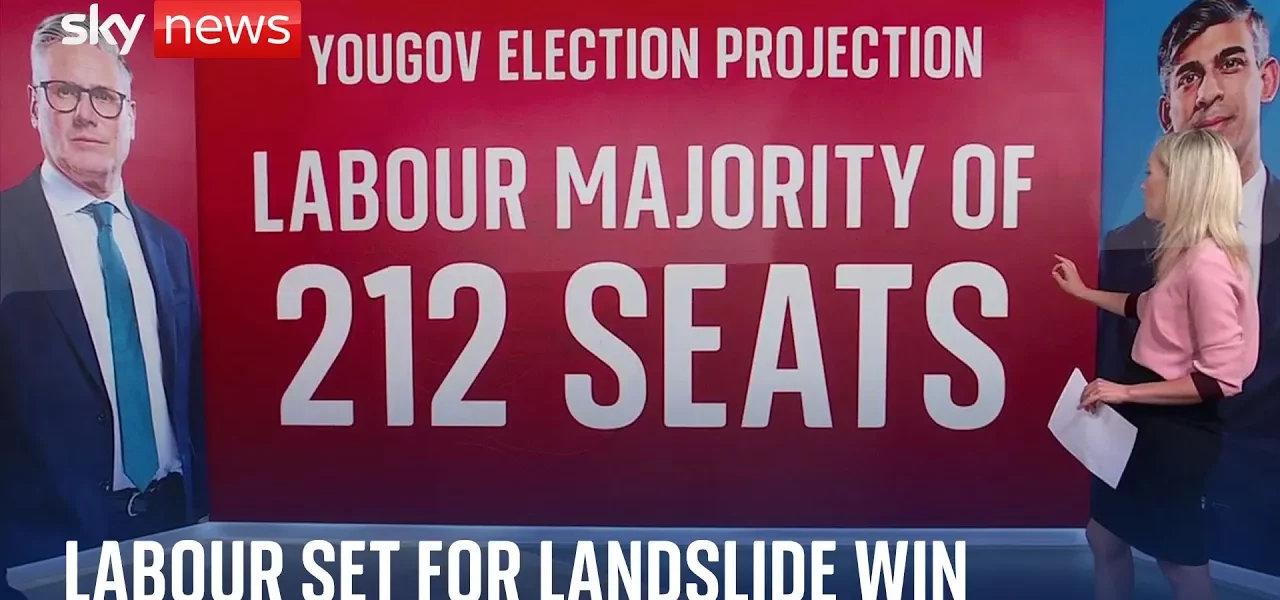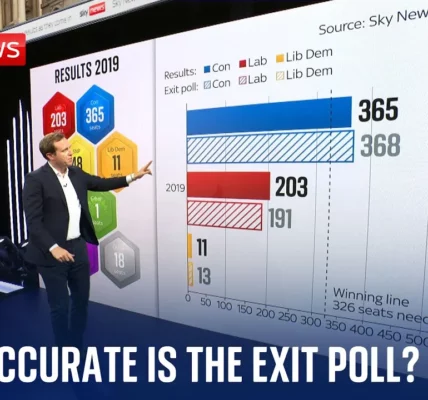UK General Election: YouGov’s Final Poll Projections

This article delves into the latest YouGov poll projections for the UK general election, revealing significant insights into the potential outcomes and historical contexts of the results.
Introduction
The political landscape in the UK is bracing for a significant shift as YouGov’s final poll projections suggest a potential landslide majority for the Labour Party in the upcoming general election. With a projected majority of 22 seats, this election could mark a historic moment, surpassing records set as far back as the 19th century. As we analyze these projections, we will explore the implications for the major political parties, historical comparisons, and the uncertainty that still looms over the electoral process.
Key Projections and Historical Context
According to YouGov, Labour is on course to secure 212 seats, a figure that, if realized, would represent the largest majority for any single party since 1832. This projection not only highlights the potential for a Labour resurgence but also signifies a dramatic decline for the Conservative Party.
Historical Comparisons
- 1832: Majority of 224 seats by the Whig Party under Earl Grey.
- 1997: Tony Blair’s Labour secured a majority of 179 seats.
- 2001: Labour’s majority reached 167 seats.
- 2024 Projection: Labour’s potential majority of 212 seats, the highest in modern history.
These comparisons reveal the gravity of the projected outcome, emphasizing how a Labour majority would reshape the political landscape in the UK.
Impacts on Major Political Parties
Labour Party’s Surge
The Labour Party, led by Keir Starmer, is projected to achieve a historic high with 431 seats, marking a gain of 202 seats since the last election. This surge illustrates the party’s strategic positioning and appeal to the electorate.
Conservative Party’s Decline
In stark contrast, the Conservative Party, under Rishi Sunak, may see its representation drop to 102 seats, the lowest recorded in history. This downturn reflects a loss of 263 seats compared to the 2019 election, raising concerns about the party’s future viability.
Other Political Parties
- SNP: Projected to drop to 18 seats, down 30 from 2019.
- Lib Dems: Expected to double their seats to 70, a significant increase.
- Greens: Projected to increase their representation to 2 seats.
- Reform: Likely to secure 3 seats, marking a notable entry for a new party.
These shifts indicate a fundamental realignment within the UK’s political framework, with Labour’s gains coming at the expense of traditional Conservative strongholds.
Understanding the Margin of Error
It’s essential to recognize that these projections come with a margin of error, highlighting the uncertainty inherent in electoral forecasting. Labour’s majority could range from as high as 282 seats to as low as 132 seats, still a commanding position, but the variance indicates potential volatility.
Implications of Margin of Error
- Potential for Labour to exceed expectations, solidifying their control.
- Possibility of a smaller majority, complicating governance.
- Uncertainty for Conservative strategies moving forward.
This uncertainty is compounded by the fact that approximately 89 seats remain too close to call, emphasizing the dynamic nature of this election.
Conclusion
The YouGov projections for the UK general election paint a picture of significant change, with Labour poised for a historic win and the Conservatives facing unprecedented losses. While these figures provide a compelling snapshot of the electoral landscape, the true outcome will only be revealed once the votes are counted. As we prepare for polling day, the implications of these projections are vast, warranting close attention from political analysts and citizens alike.
For ongoing updates and in-depth analysis of the election results, stay tuned to our website.
“`




